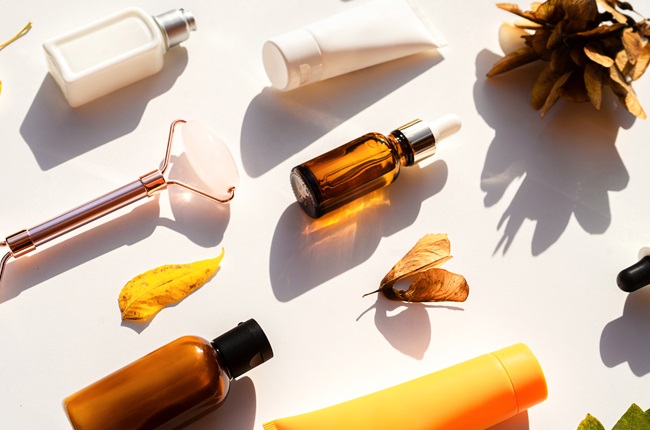
- As the weather gets colder, it's important to adjust your skincare routine accordingly.
- Cooler weather can result in dryer skin, so the routine you use during the warmer seasons may not provide the high level of moisture your skin needs in autumn.
- Dr Alek Nikolic shares tips for small changes that make a big difference in the cooler seasons.
With cooler autumn weather fast approaching, it's important to take a look at your skincare routine and make the necessary adjustments. Normally, the skin routines people use during the warmer months do not lock in enough moisture for the colder seasons.
Dr Alek Nikolic shares some tips and tricks for taking care of your skin in autumn.
Why does your skin feel dryer during the cooler months?
The change in climate cause the skin to feel dryer during cooler months. Here's how according to a press statement from Dr Nikolic:
-Chilly air is dryer and contains less humidity, and this naturally removes moisture from the skin.
-Indoor heating can wreak havoc when it comes to your skin - most heaters and even air conditioners produce dry heat, which further sucks moisture from the skin.
-Long hot showers and baths during the cooler months tend to strip the skin of its natural lipids, which increases skin permeability and water loss.
-The cooler months are also associated with windy or stormy weather, which further increases water loss from the skin.
READ MORE | Brighter and tighter: Ice does benefit the skin, but make sure you're using it safely
What to look for in your products
Look for products that rehydrate the skin and repair the skin barrier. Dr Nikolic says you should be on the lookout for emollients, humectants and antioxidants.
"Emollients can have a thick or a thin consistency, so it's important not to judge how well a moisturiser will work simply on its consistency," adds Dr Nikolic.
READ MORE | Is your skin really sensitive or just sensitised? Here's the difference and what you can do to fix it
Skin-replacing ingredients:
Skin-replacing ingredients help to repair and replace moisture in the skin. They can also increase the water-holding capacity of the stratum corneum (the outer layer of the skin).
"My recommendation when looking for the best moisturiser is to choose a product that contains specific ingredients that will provide a much richer feel and texture on the skin's surface. So, the lighter moisturisers we used in the summer will need replacing for the coming winter months. The skin can appear dull during this season as there is generally an increase in indoor heating, sapping your skin of luminosity and moisture. Full hydration of the skin will help avoid this issue. I would even suggest that you add serums that are rich in hyaluronic acid to further boost the water absorption capabilities of the skin," advises Dr Nikolic.
READ MORE | Dehydration, pigmentation or sagging: Here's what you should be doing to target these skin problems
Take care when exfoliating
"Exfoliating can either work wonders for your skin or it can cause damage to your skin," says Dr Nikolic. "I am, however, pro-exfoliation even in winter because, without it, your skin will stay dry no matter how many creams you apply as dead skin cells can stop your skin from absorbing your skincare products. The safest way to exfoliate is to use chemical exfoliators as physical exfoliators, like scrubs, can be too abrasive."
Chemical exfoliation helps wash away the layer of dead skin cells by breaking down the bonds between the cells. Dr Nikolic recommends looking for gentle AHAs like lactic acid and glycolic acid. Consider using a gentle cream cleanser in the morning and an exfoliating cleanser in the evening, he advises.
Source: Distributed by The Friday Street Club




 Publications
Publications
 Partners
Partners












